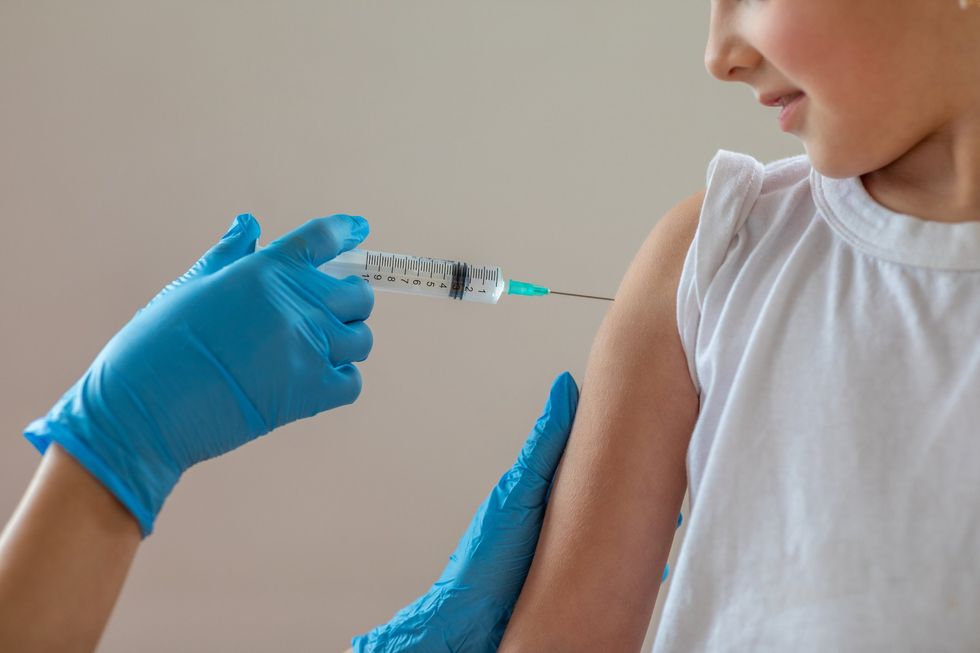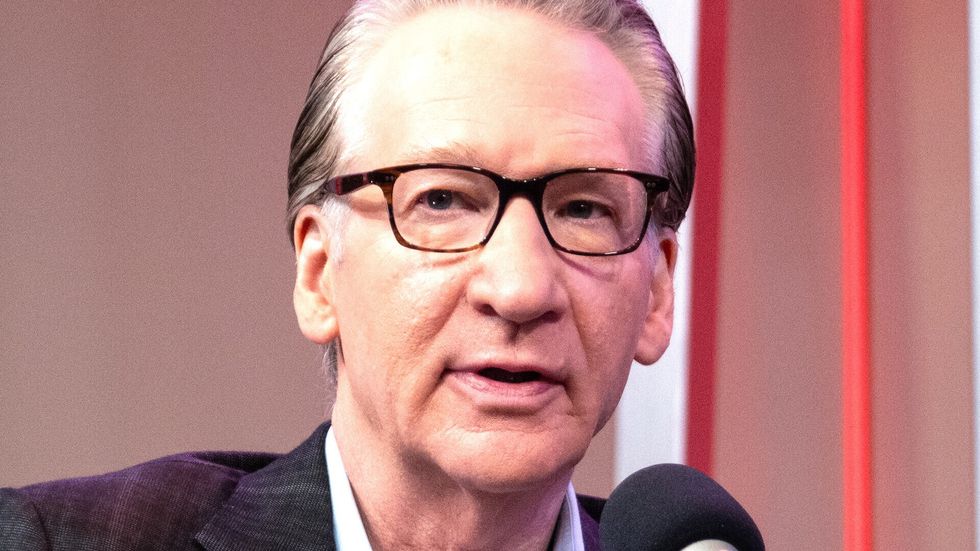Vaccine censorship? A senator’s autism inquiry sparks media outrage
Sen. Markwayne Mullin (R-Okla.) used the legacy media's airwaves on Sunday to ask a question that polite society forbids.The topic: vaccines.“I think they should be questioned,” Mullin declared on NBC News’ “Meet the Press.”The question: “Why is America highest in autism? What is causing that?”“Is it our diet?” Mullin continued. “Or is it some of the stuff we’re putting in our children's system?”The question is important and needs to be asked, Mullin explained, because autism “used to be almost not even heard of.” Just one or two generations ago, autism was rare. Today, it's extremely common.If a hierarchy of denialism existed, 'anti-vaxxer' sits just behind 'Holocaust denier' and 'election denier.'In fact, the prevalence of autism spectrum disorder in the United States has skyrocketed from 0.1–0.4 per 1,000 children in the 1980s — the same decade vaccine manufacturers were immunized from civil liability for vaccine-related injuries and deaths — to 27.6 per 1,000 children in 2020, an exponential increase. “What is causing that?” Mullin asked again. “And if it is the vaccines, there’s nothing wrong with actually taking a hard look and finding: Is that what’s causing it?” he continued. “Is it something else that we’re putting in our systems? We do know we’re not as healthy as we should be right now. We’re the most developed country in the world, so all things should be on the table. And if that’s scrutinizing vaccinations, then that is exactly where we need to go.”Moderator Kristen Welker responded to Mullin's question by repeating scientific dogma.“I just have to say, no credible expert or study has shown a link between vaccines and autism,” she said.Anti-vaxxer?The label “anti-vaxxer” is a modern-day scarlet letter.In the hierarchy of denialism, “anti-vaxxer” sits just behind “Holocaust denier” and ”election denier.” Each pejorative epithet functions to discredit a person prime facie, a rhetorical move that signals a person is so detached from reality that debating them is pointless.And unfortunately, Mullin was summarily assigned this scarlet letter after his “Meet the Press” interview.Mediaite accused Mullin of spouting “anti-vaccine talking points.” Left-wing journalist Aaron Rupar claimed Mullin went “full anti-vaxxer.” The Daily Beast accused Mullin of pushing a “bonkers vaccine conspiracy.”But is this true? Is Mullin against vaccines?Not according to Welker, who noted in the interview that Mullin has “been on the record saying” that he does “believe vaccines are safe and effective.”Never once did Mullin question the efficacy of vaccines in the interview. Rather, he asked a basic question inquiring why the United States is experiencing skyrocketing rates of autism while arguing that “all things” should be investigated to understand the worrying trend.That Mullin is being labeled anti-vax for merely asking a question — the first step of the scientific method, after all — proves Peter Thiel's point that “science” has become overly dogmatic.“What has become ‘science’ — I’ll use scare quotes around science — is something that is more dogmatic than the Catholic Church was in the 17th century,” Thiel said in a recent interview.Speaking of the lack of skepticism on vaccines specifically, Thiel added:I don't particularly think that vaccines lead to autism. If they did, I don't think our science is capable of figuring it out because the results would get suppressed because it would undercut the lobby for vaccinations. There obviously are a lot of good vaccines, too. If there was some truth to it, that would undercut it. I'm pretty sure that question isn’t being investigated. There has been a dramatic increase in autism in recent decades. We don’t have particularly good explanations for it. Surely it’s something we should be thinking about more. Yeah. So again, I don’t think vaccines lead to autism. I do think it’s the sort of question that it would be healthy if we were allowed to ask a little bit more than we are. And of course, we just went through this crazy exercise with the COVID epidemic where we somehow cut off skepticism so prematurely so many times where not only was the skepticism healthy, but the skeptics were right.Questions beget questionsPolite society lectures people like Mullin for even raising a question about autism prevalence while uttering the word “vaccine” in the same breath.But Mullin’s question — what is causing the high prevalence of autism in the U.S. compared to recent history and other developed countries — raises another question: Why don’t we have a satisfactory, science-based answer for the sharp rise in autism?Today, the rise of autism is attributed to greater societal awareness of autism and improvements in diagnostics. This explanation implies that autism was always prevalent but previously went unrecognized and was misunderstood because of societal and cultural norms.Like Thiel, I find this explanation unpersuasive. But we owe it to our children and our children's children to


Sen. Markwayne Mullin (R-Okla.) used the legacy media's airwaves on Sunday to ask a question that polite society forbids.
The topic: vaccines.
“I think they should be questioned,” Mullin declared on NBC News’ “Meet the Press.”
The question: “Why is America highest in autism? What is causing that?”
“Is it our diet?” Mullin continued. “Or is it some of the stuff we’re putting in our children's system?”
The question is important and needs to be asked, Mullin explained, because autism “used to be almost not even heard of.” Just one or two generations ago, autism was rare. Today, it's extremely common.
If a hierarchy of denialism existed, 'anti-vaxxer' sits just behind 'Holocaust denier' and 'election denier.'
In fact, the prevalence of autism spectrum disorder in the United States has skyrocketed from 0.1–0.4 per 1,000 children in the 1980s — the same decade vaccine manufacturers were immunized from civil liability for vaccine-related injuries and deaths — to 27.6 per 1,000 children in 2020, an exponential increase.
“What is causing that?” Mullin asked again.
“And if it is the vaccines, there’s nothing wrong with actually taking a hard look and finding: Is that what’s causing it?” he continued. “Is it something else that we’re putting in our systems? We do know we’re not as healthy as we should be right now. We’re the most developed country in the world, so all things should be on the table. And if that’s scrutinizing vaccinations, then that is exactly where we need to go.”
Moderator Kristen Welker responded to Mullin's question by repeating scientific dogma.
“I just have to say, no credible expert or study has shown a link between vaccines and autism,” she said.
Anti-vaxxer?
The label “anti-vaxxer” is a modern-day scarlet letter.
In the hierarchy of denialism, “anti-vaxxer” sits just behind “Holocaust denier” and ”election denier.” Each pejorative epithet functions to discredit a person prime facie, a rhetorical move that signals a person is so detached from reality that debating them is pointless.
And unfortunately, Mullin was summarily assigned this scarlet letter after his “Meet the Press” interview.
Mediaite accused Mullin of spouting “anti-vaccine talking points.” Left-wing journalist Aaron Rupar claimed Mullin went “full anti-vaxxer.” The Daily Beast accused Mullin of pushing a “bonkers vaccine conspiracy.”
But is this true? Is Mullin against vaccines?
Not according to Welker, who noted in the interview that Mullin has “been on the record saying” that he does “believe vaccines are safe and effective.”
Never once did Mullin question the efficacy of vaccines in the interview. Rather, he asked a basic question inquiring why the United States is experiencing skyrocketing rates of autism while arguing that “all things” should be investigated to understand the worrying trend.
That Mullin is being labeled anti-vax for merely asking a question — the first step of the scientific method, after all — proves Peter Thiel's point that “science” has become overly dogmatic.
“What has become ‘science’ — I’ll use scare quotes around science — is something that is more dogmatic than the Catholic Church was in the 17th century,” Thiel said in a recent interview.
Speaking of the lack of skepticism on vaccines specifically, Thiel added:
I don't particularly think that vaccines lead to autism. If they did, I don't think our science is capable of figuring it out because the results would get suppressed because it would undercut the lobby for vaccinations. There obviously are a lot of good vaccines, too. If there was some truth to it, that would undercut it. I'm pretty sure that question isn’t being investigated. There has been a dramatic increase in autism in recent decades. We don’t have particularly good explanations for it. Surely it’s something we should be thinking about more.
Yeah. So again, I don’t think vaccines lead to autism. I do think it’s the sort of question that it would be healthy if we were allowed to ask a little bit more than we are. And of course, we just went through this crazy exercise with the COVID epidemic where we somehow cut off skepticism so prematurely so many times where not only was the skepticism healthy, but the skeptics were right.
Questions beget questions
Polite society lectures people like Mullin for even raising a question about autism prevalence while uttering the word “vaccine” in the same breath.
But Mullin’s question — what is causing the high prevalence of autism in the U.S. compared to recent history and other developed countries — raises another question: Why don’t we have a satisfactory, science-based answer for the sharp rise in autism?
Today, the rise of autism is attributed to greater societal awareness of autism and improvements in diagnostics. This explanation implies that autism was always prevalent but previously went unrecognized and was misunderstood because of societal and cultural norms.
Like Thiel, I find this explanation unpersuasive. But we owe it to our children and our children's children to find a satisfactory explanation and course-correct if we can.
The journey to finding that answer must include asking difficult questions — not shutting down anyone who dares question the dogmas of “scientific truth.”
Originally Published at Daily Wire, World Net Daily, or The Blaze
What's Your Reaction?

































































































